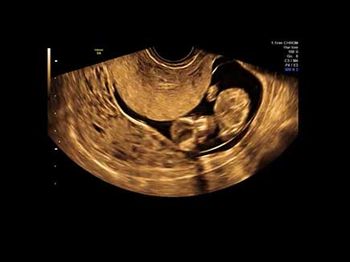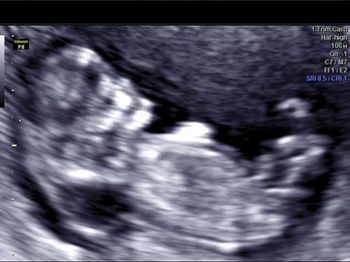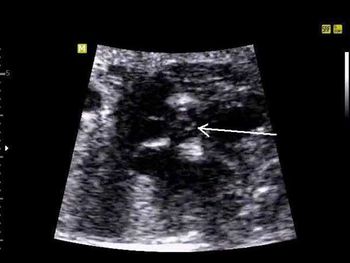
All News


A population-based study suggests that there may be a link between autism spectrum disorder (ASD) in boys and prenatal exposure to selective serotonin reuptake inhibitors (SSRIs). The researchers caution, however, that interpretation of their findings is complicated by potential recall bias and residual confounding and that maternal depression alone is risky for a fetus.

According to a recent study in the British Medical Journal, women who suffer from chronic hypertension are at higher risk of adverse pregnancy outcomes like low birth weight and neonatal death.

Women undergoing the menopausal transition may be prone to prolonged bleeding with periods of heaviness, according to a new study in BJOG.

Reports of women being criticized for “intense” workouts in late pregnancy are circulating the Web. Are these criticisms clinically warranted, or are the criticizers just bullies?

Challenge your diagnostic skills: Can you identify this anomaly?

A safety communication discouraging use of power morcellation during hysterectomy or myomectomy for fibroids has been issued by the Food and Drug Administration (FDA) because of concern about risk of inadvertent spread of unsuspected cancer to abdominal and pelvic cavities.

The FDA has weighed in on the safety of uterine fibroid morcellation. Given the current evidence, find out what they recommend.

New research shows that too much or too little maternal weight gain in pregnancy is associated with the child’s risk of being overweight or obese in early childhood.

A new meta-analysis has quantified the risk of preeclampsia and other adverse pregnancy outcomes in women with chronic hypertension.

According to a recent study in Pediatrics, paternal obesity could be an even greater risk factor than maternal obesity for developmental disorders such as autism spectrum disorders (ASD).

New research suggests that ankle fractures should be considered in the same category as forearm fractures when it comes to assessing risk of bone breaks in postmenopausal women. The findings were presented at the World Congress on Osteoporosis, Osteoarthritis and Musculoskeletal Diseases in Seville, Spain.

Don’t let time constraints and large patient loads prevent you from providing a thorough well-woman visit. Are you covering all the bases?

Prolonged bleeding as women transition into menopause is common. Although disconcerting, these changes generally require nothing more than watchful waiting.

Challenge your diagnostic skills: Can you identify this well-known anomaly?

What does the world look like through Google Glass?


Not losing any baby weight within 1 year after delivery increases a woman’s risk of diabetes and heart disease, new research shows.

A randomized controlled trial (RCT) calls into question the benefit of administering hyperimmune globulin to pregnant women with primary cytomegalovirus infection (CMV) as a way to prevent intrauterine transmission. CMV is a major cause of morbidity and mortality.

A recent study in Cancer Epidemiology, Biomarkers & Prevention indicates that the link between breast cancer and fertility drugs may not be as strong as previously suspected.

When temperatures remain over 32° C for at least 4 days, the probability of an early-term delivery may increase by as much as 27%, according to new research in Epidemiology.

The reported outcomes for the da Vinci robot have been disappointing, but a new study shows that surgeons can achieve expert-level results using the Morristown Protocol.

Digital mammography is superior to screen-film mammography, and the digital technology has other patient benefits as well, a new study finds.

Challenge your diagnostic skills: Can you identify this cardiac defect?

A study from The American Journal of Clinical Nutrition is the basis for this article in Woman's Day. A link to the North American Menopause Society’s website is offered in the introduction, but not one to the study abstract itself.

Featured on the home page of Ladies Home Journal’s Health section, this article offers guidelines for Tdap, influenza, herpes zoster, pneumococcal disease, and hepatitis B vaccination in adults. No information is included on vaccination in pregnancy.

Expert Mary Jane Minkin, MD, is quoted in an article in Women’s Health that profiles a study from the Journal of Sexual Medicine.

Marijuana and e-cigarettes can cause harm in more ways than you may think. Do you ask your patients about their marijuana or e-cigarette use? The numbers may surprise you.

The number of live births a woman has had may indicate her risk of heart disease, adding to evidence that body changes in pregnancy play a role in cardiovascular disease.

A reader writes about reducing costs of care to lead to improved, sustainable revenues for the clinical enterprise.